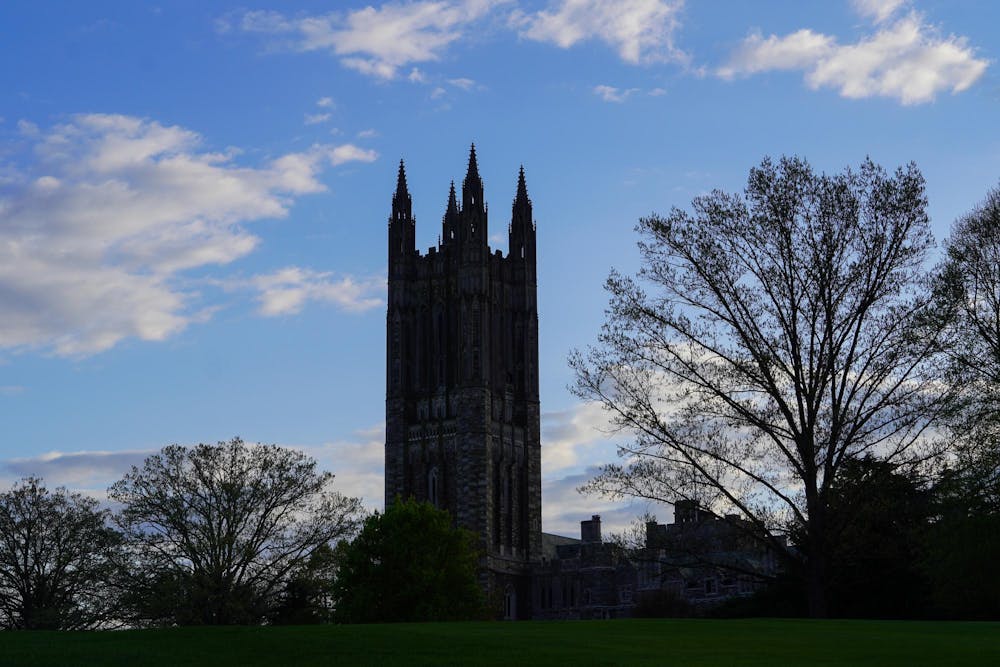This past weekend, Princeton hosted Many Minds, Many Stripes, a celebration honoring graduate alumni and marking the 125th anniversary of the Graduate School.
The three-day event was held at multiple locations across campus, including Richardson Auditorium, McCosh Hall, Chancellor Green, East Pyne, and Poe Field. The festivities included a combination of alumni gatherings, academic talks and panels, networking, and research facility hours.
The event reflected on the achievements of the graduate school over the past 125 years, highlighting the 37,000 graduate degrees awarded — including 18 to current Nobel Prize Laureates.
The weekend included several speeches by University administrators about the issues affecting the Graduate School and the University’s plans for the future. They focused on how the University is expanding the Graduate School and resolving challenges from the Trump administration.
Dean of the Graduate School Rod Priestley invited the attendees to also look towards the Graduate School’s future developments, such as the University’s commitment to full funding for PhD students and enhanced support for master’s programs, nearly all of which are already fully funded.
He also discussed new programs in bioengineering, biophysics, and quantum science, and the importance of interdisciplinary collaboration.
“Each of these new programs represents significant investment by the University and research facilities, and offers graduate students the opportunity to work with world-class scholars in fields that have the potential to dramatically impact society,” Priestley said in a speech at the event. “Princeton’s graduate school is thriving.”
On the second day of the event, University President Christopher Eisgruber ’83 took the stage in Richardson Auditorium and shared similar sentiments as he has in the past, highlighting the continued strength of Princeton’s graduate programs.

“I get up every day with the confidence that there are extraordinary things happening on the Princeton University campus … that we have fabulous graduate students, fabulous undergraduates and fabulous faculty,” Eisgruber said. “My job is to talk to the world about why these institutions are so important to us and worth preserving.”
In a dialogue with Ann Kirschner ’78, Eisgruber emphasized the importance of free expression and diversity of thought on campus and underscored the Graduate School’s commitment to diversity of background.
When Eisgruber opened up the floor for questions, Hannah Hunter-Parker GS ’19 shared her concern that non-U.S. citizens face constant scrutiny when it comes to speaking up politically or conducting certain research.
“I can’t offer [non-citizens] some kind of magic solution,“ Eisgruber said. “I think it’s important, on the one hand, to see the risk [in speaking up], but on the other hand not to exaggerate it.”

He indicated that as of September, the rate at which students were able to get visas and successfully arrive on campus for the current academic year was nearly identical to previous years.
“This doesn’t mean that things are fine,“ he added. “I am focused on [this issue] as I go to Washington, and I am focused on it as I counsel our students. But it’s important to keep the risks in perspective as we move forward too.”
Eisgruber’s comments about international students’ speech and research are consistent with those made in his interview with the ‘Prince’ published earlier this month.
The University also held numerous panel discussions throughout the weekend, where Princeton alumni and students shared their thoughts on the state of higher education, freedom of speech on campus, and developments in AI and educational access.
Among these, Dean of the School of Public and International Affairs Amaney Jamal, Ajay Bisaria GS ’09, and Cara Abercrombie GS ’03 sat for a panel on the importance of fostering trust among stakeholders and adjusting to evolving technologies in public service, while Provost Jennifer Rexford ’91 and Sarah Nagy GS ’14 held a panel on AI’s implications for academia and institutions.
During his talk in Richardson, Eisgruber similarly shared his optimism about the potential of AI to unlock new possibilities in research and education, while acknowledging the risks and challenges it poses.
“AI clearly both offers opportunities and poses risk … but I’m an AI optimist too,” he said. “There are very serious risks and threats, but let’s start with this: When you think about what AI means as something that enables us to ask questions we were never able to ask before, or to get answers to questions that we were asking previously about huge data sets — that is an extraordinary thing for a University.”
Eisgruber also expressed that students who have the quality of a Princeton graduate or undergraduate degree will be better suited to deal with the changing circumstances of AI.
“These educations provide the ability to deal with the unexpected, to think rigorously and hard about questions beyond those that we imagine right now,” Eisgruber said.
Nika Schindler is a News contributor for the ‘Prince.’ She is from Woodside, Calif. and can be reached at ns1295@princeton.edu.
Ambre Van de Velde is a News contributor for the ‘Prince.’ She is from Boston, Mass. She can be reached at av8447@princeton.edu.
Please send any corrections to corrections[at]dailyprincetonian.com.








